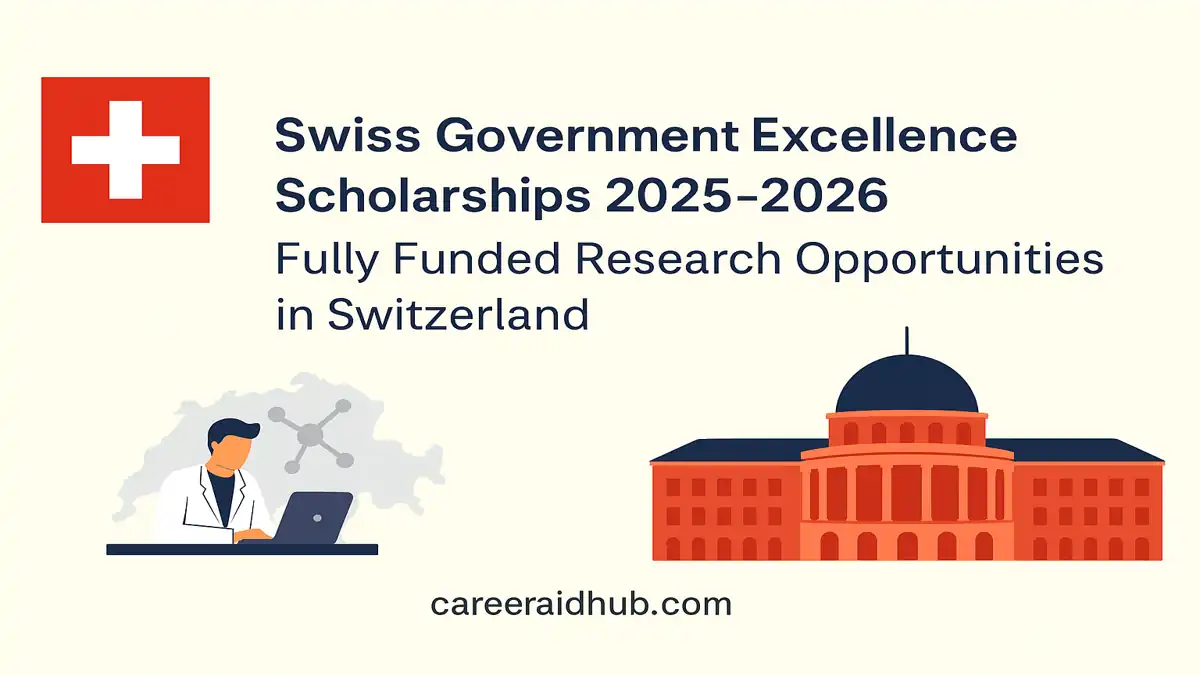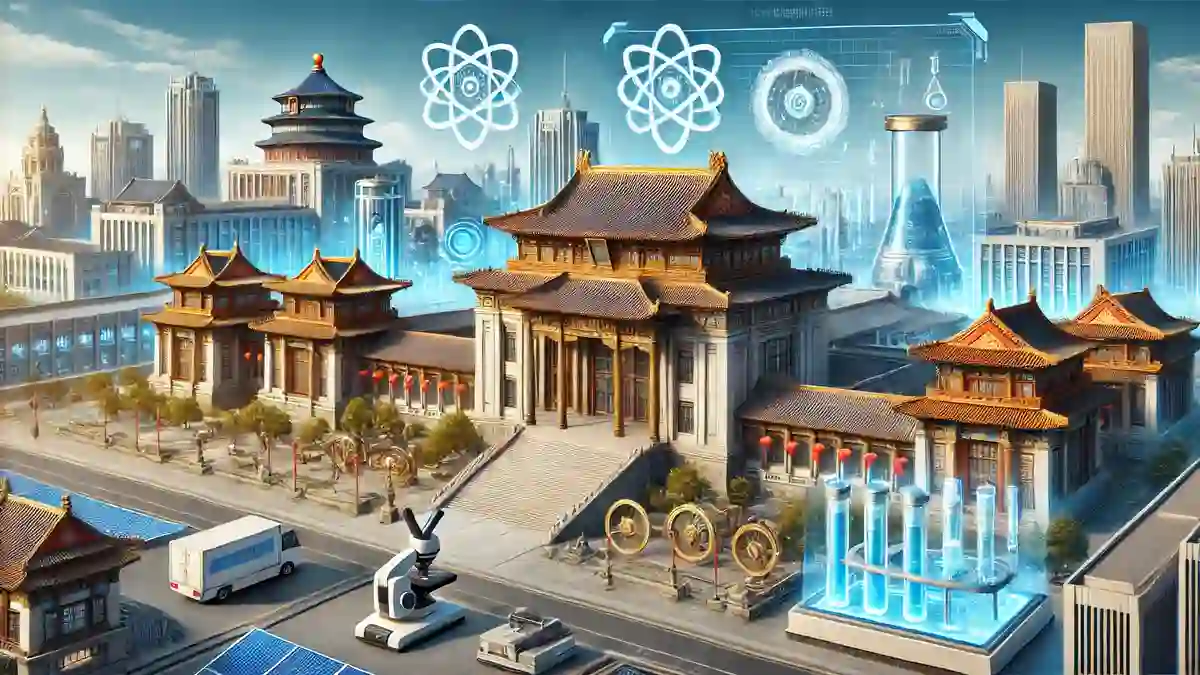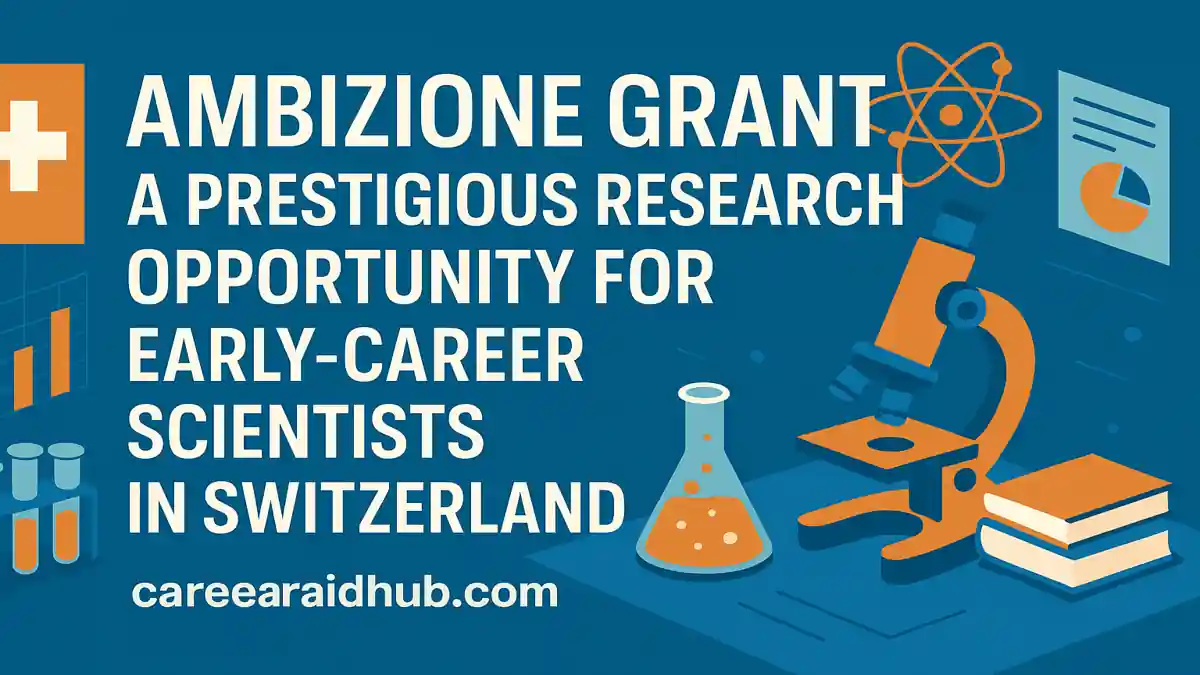The NASA Postdoctoral Program (NPP) is a highly prestigious initiative that provides early-career and senior-level scientists with the opportunity to conduct independent research at NASA centers, NASA Headquarters, or affiliated research institutions across the United States. Designed to attract exceptional researchers, the NPP enables participants to engage in space and Earth sciences, planetary exploration, aeronautics, astrophysics, astrobiology, and other domains aligned with NASA’s core mission.
The NASA Postdoctoral Program (NPP) offers exceptional PhD researchers a unique chance to work at NASA centers, advancing science and technology. With competitive funding, mentorship, and access to cutting-edge research facilities, NPP enables scholars to contribute meaningfully to NASA’s mission and build distinguished careers in space and Earth sciences.
Program Overview
Program Name
NASA Postdoctoral Program (NPP)
Host Country / Region
United States
Funded By
National Aeronautics and Space Administration (NASA), administered by Oak Ridge Associated Universities (ORAU)
Duration
Initial appointment up to 2 years; renewable for a third year upon satisfactory performance and funding availability
Study Mode
Full-time, on-site at a NASA center or associated institution
Eligibility Criteria
PhD degree in a science, technology, engineering, or mathematics (STEM) field completed
before the fellowship start dateOpen to all nationalities; however, U.S. work authorization is required
Three fellowship tracks based on career level:
Postdoctoral Fellow: PhD received within the past five years
Senior Fellow: PhD earned more than five years ago
Management Fellow: For those pursuing scientific leadership roles, typically with prior postdoctoral experience
Financial Support
Stipend: Minimum $70,000/year; varies by location, experience, and appointment type
Health Insurance: Subsidized (~85% covered); balance taxable
Travel Allowance: $10,000 annually for conferences, research visits, and professional development
Relocation Reimbursement: Allowable per federal rates (taxable)
Fields of Study
Space and Earth Sciences
Astrophysics and Astronomy
Astrobiology
Planetary Sciences
Heliophysics
Engineering and Robotics
Technology and Instrumentation
Climate and Environmental Science
Science Program Management (for NPMP track)
Application Deadline
November 1, 2025 at 6:00 p.m. ET (for the current extended cycle)
Application Process
Step 1: Register
Applicants must first create an account on the NPP Gateway via the Zintellect platform maintained by ORAU. Registration enables access to the application portal
Step 2: Explore Opportunities
Candidates can browse available opportunities by:
NASA Center (e.g., Ames, JPL, Goddard, Langley)
Research focus areas
Citizenship eligibility
Each listing includes a project summary, advisor contact details, and expected qualifications.
Step 3: Connect with a NASA Research Advisor
Before applying, candidates are encouraged to contact their prospective advisor. This step ensures the proposal aligns with current NASA goals and resources, improving competitiveness and feasibility.
Step 4: Prepare and Compile Application Materials
Applicants must submit:
Updated curriculum vitae (CV)
Three reference letters (including one from the PhD advisor if recently graduated)
Transcripts (for applicants within five years of their PhD)
Complete list of publications
Comprehensive research proposal (maximum 15 pages, 12-point font, double-spaced), including:
Abstract
Research goals and significance
Methodology
Timeline and deliverables
Budget justification (if applicable)
Step 5: Submit Application
Applications must be completed and certified through the Zintellect portal before the official deadline. Late or incomplete submissions are not accepted.
Selection Process
Initial Screening
Advisors at the chosen NASA Center
Peer Review
Each proposal is evaluated by three external subject-matter experts based on:
Scientific merit and innovation
Applicant’s track record and publications
Proposal clarity and relevance
Letter of reference content
Final Decision
Recommendations are forwarded to the NASA Center director and program officers. Decisions are made based on scientific ranking, strategic alignment, and funding availability. ORAU then issues offer letters to selected applicants within two to three months of the application deadline.
Fellowship Benefits
Duration and Renewal
Initial awards are made for up to 24 months. Fellows may apply for a one-year extension subject to progress evaluation and continued funding.
Financial Package
Stipend: Competitive and location-adjusted; typically starts at $70,000 annually
Health Coverage: ORAU contributes approximately 85% toward the cost
Travel Fund: $10,000 annually, to be used for academic travel and collaborative visits
Relocation Support: Based on standard government rates and fellow location
Strategic Tips for Applicants
Focus on Alignment
Successful proposals are those that strongly align with NASA’s mission and current research priorities. Review the latest NASA science
Advisor Communication
Initiating discussions with your prospective NASA advisor is crucial. These conversations often help shape stronger, more relevant proposals.
Follow Guidelines Precisely
Formatting or submission errors can result in disqualification. Be meticulous with margins, fonts, page limits, and upload requirements.
Limit One Application Per Cycle
Applicants are allowed to submit only one proposal per application cycle. Use your time and effort to make it count.
Engage in Interdisciplinary Ideas
NASA welcomes proposals that span multiple disciplines. If your project intersects biology and robotics, or physics and data science, emphasize the integrative aspect.
Importance of the NASA Postdoctoral Program
Career Development
The NPP offers an ideal platform for transitioning from doctoral research into impactful independent scientific inquiry. Fellows benefit from NASA’s unparalleled resources, data access, and research infrastructure.
Visibility and Network Expansion
NPP Fellows gain visibility within the global scientific community. Participation often leads to collaborations, academic appointments, and future federal or industry leadership roles.
Contribution to National Missions
Work performed under the NPP contributes directly to NASA’s goals in understanding Earth, the solar system, and the universe—advancing human knowledge and exploration.
Final Thoughts
The NASA Postdoctoral Program remains one of the most competitive and rewarding fellowships for researchers in science and engineering. By fostering intellectual freedom, providing top-tier mentorship, and enabling mission-critical research, the NPP equips the next generation of scientists to shape the future of space and Earth science.
Update Schedule
We recommend reviewing and updating this article every six months to reflect changes in application deadlines, benefits, or eligibility.
External Authoritative Links
Next Deadline: November 1, 2025, at 6:00 p.m. Eastern Time
| Feature | Details |
|---|---|
| Program Name | NASA Postdoctoral Program (NPP) |
| Host Country / Region | United States |
| Funded By | National Aeronautics and Space Administration (NASA), managed by ORAU |
| Duration | 2 years (renewable for a 3rd year) |
| Study Mode | Full-time, in-residence at NASA Centers or affiliated institutions |
| Eligibility | PhD holders in STEM fields; open to all nationalities with U.S. work authorization |
| Financial Support | $70,000+ stipend/year, $10,000 travel allowance, health insurance (~85%), relocation reimbursement |
| Fields of Study | Space science, astrophysics, engineering, planetary science, astrobiology, Earth science, and related fields |
| Application Deadline | 11/01/2025 at 6:00 p.m. ET |
| Official Website | https://npp.orau.org |
FAQs for NASA Postdoctoral Program
The NASA Postdoctoral Program offers PhD holders the chance to conduct advanced research at NASA centers across the U.S.
Any PhD graduate with U.S. work authorization can apply, regardless of nationality or discipline.
The fellowship is up to three years—two years initially with a possible one-year extension.
Yes, applicants must contact and secure a NASA research advisor before submitting their proposal.










